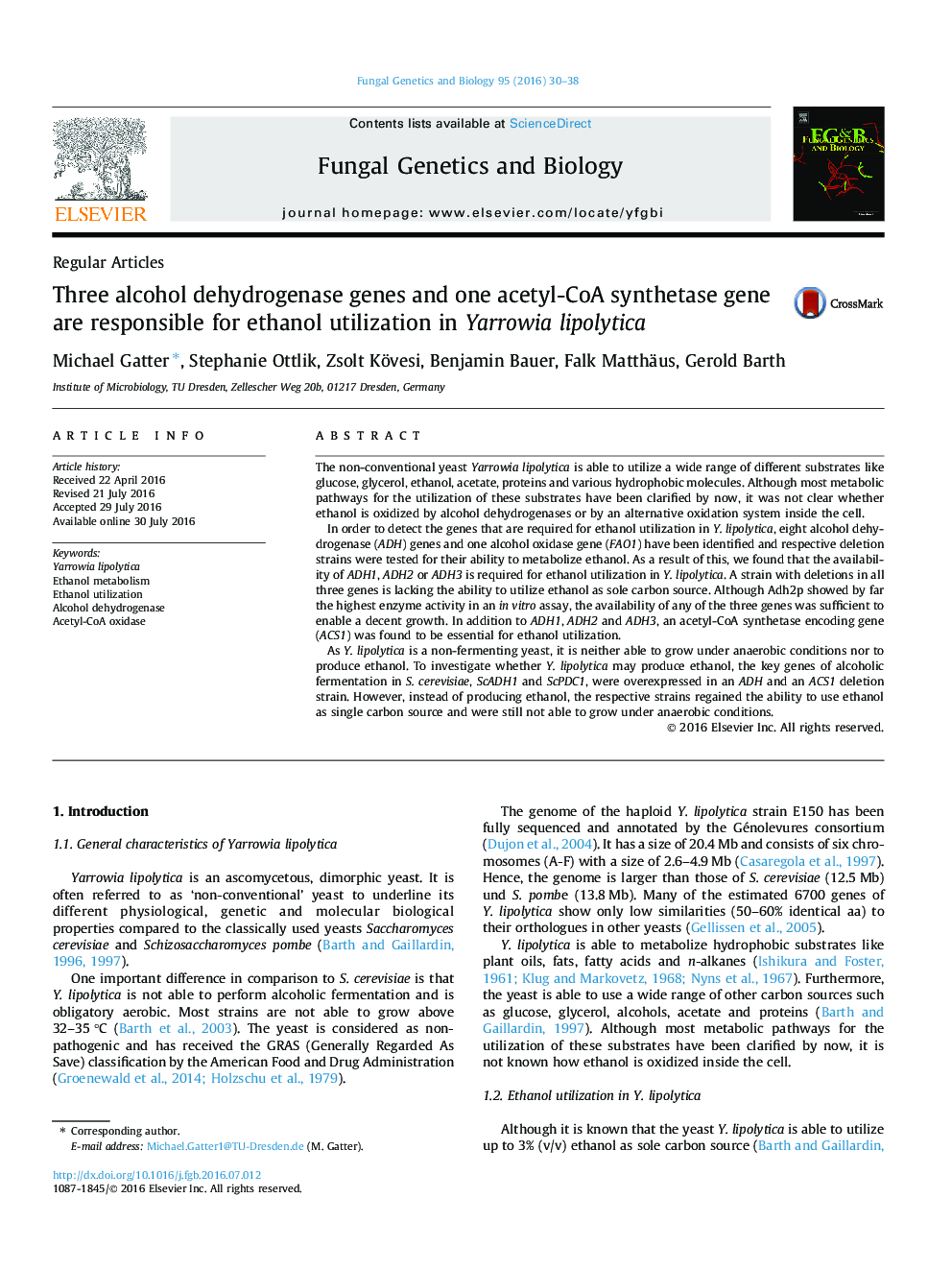| کد مقاله | کد نشریه | سال انتشار | مقاله انگلیسی | نسخه تمام متن |
|---|---|---|---|---|
| 2180650 | 1549996 | 2016 | 9 صفحه PDF | دانلود رایگان |

• ADH1, ADH2, ADH3 and ACS1 are responsible for ethanol utilization in Y. lipolytica.
• Adh2p showed by far the highest enzyme activity in an in vitro assay.
• The availability of any of the three ADH genes enabled ethanol utilization.
• The ADH genes are involved in the utilization of higher alcohols while ACS1 is not.
The non-conventional yeast Yarrowia lipolytica is able to utilize a wide range of different substrates like glucose, glycerol, ethanol, acetate, proteins and various hydrophobic molecules. Although most metabolic pathways for the utilization of these substrates have been clarified by now, it was not clear whether ethanol is oxidized by alcohol dehydrogenases or by an alternative oxidation system inside the cell.In order to detect the genes that are required for ethanol utilization in Y. lipolytica, eight alcohol dehydrogenase (ADH) genes and one alcohol oxidase gene (FAO1) have been identified and respective deletion strains were tested for their ability to metabolize ethanol. As a result of this, we found that the availability of ADH1, ADH2 or ADH3 is required for ethanol utilization in Y. lipolytica. A strain with deletions in all three genes is lacking the ability to utilize ethanol as sole carbon source. Although Adh2p showed by far the highest enzyme activity in an in vitro assay, the availability of any of the three genes was sufficient to enable a decent growth. In addition to ADH1, ADH2 and ADH3, an acetyl-CoA synthetase encoding gene (ACS1) was found to be essential for ethanol utilization.As Y. lipolytica is a non-fermenting yeast, it is neither able to grow under anaerobic conditions nor to produce ethanol. To investigate whether Y. lipolytica may produce ethanol, the key genes of alcoholic fermentation in S. cerevisiae, ScADH1 and ScPDC1, were overexpressed in an ADH and an ACS1 deletion strain. However, instead of producing ethanol, the respective strains regained the ability to use ethanol as single carbon source and were still not able to grow under anaerobic conditions.
Journal: Fungal Genetics and Biology - Volume 95, October 2016, Pages 30–38